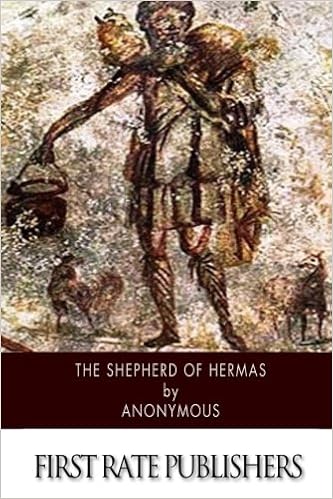Wednesday, March 23, 2022
On "The Dream of the Red Chamber" by Cao Xaoqin ***
Monday, March 21, 2022
On "The Shepherd of Hermas" **
The work starts off with a set of visions or tales in which Hermas meets up with various angels--mostly women. He finds himself drawn to them; they give him instructions. He's warned about having lusting thoughts. At one point, he's even told that Christians have the opportunity to repent only once of a sin after baptism; after that, there's no more hope. That seems a strange comment and one that later portions of the work don't seem to confirm.
Although the visions were not particularly interesting to me, the next two sections had a bit more going for them. The second section consists of mandates, twelve of them. Think of them like commandments for New Testament believers. I couple of them seemed so close in meaning that I had a hard time distinguishing between them. Most were a bit long-winded, and so not as easy to ferret out or summarize as the Ten Commandments. Nevertheless, I'll try here:
- Believe God is one.
- Be guileless.
- Love truth.
- Remain pure.
- Have patience.
- Trust righteousness.
- Fear the right things.
- Remain temperate in right things.
- Avoid doubt.
- Put away sorrow.
- Trust the Spirit.
- Remove evil desire.
The last section consists of a set of parables, comparing the church and believers to this and that--trees, plants, cities, towers. These, on the whole, seemed much more approachable than the visions at the book's start.







